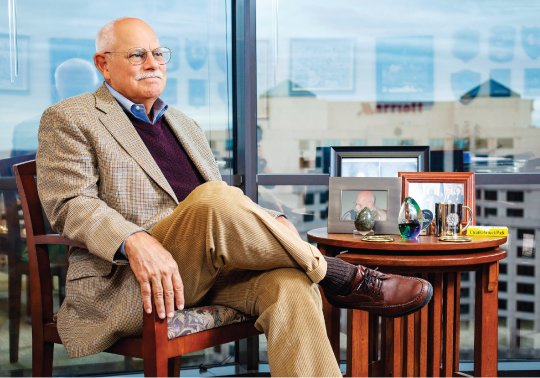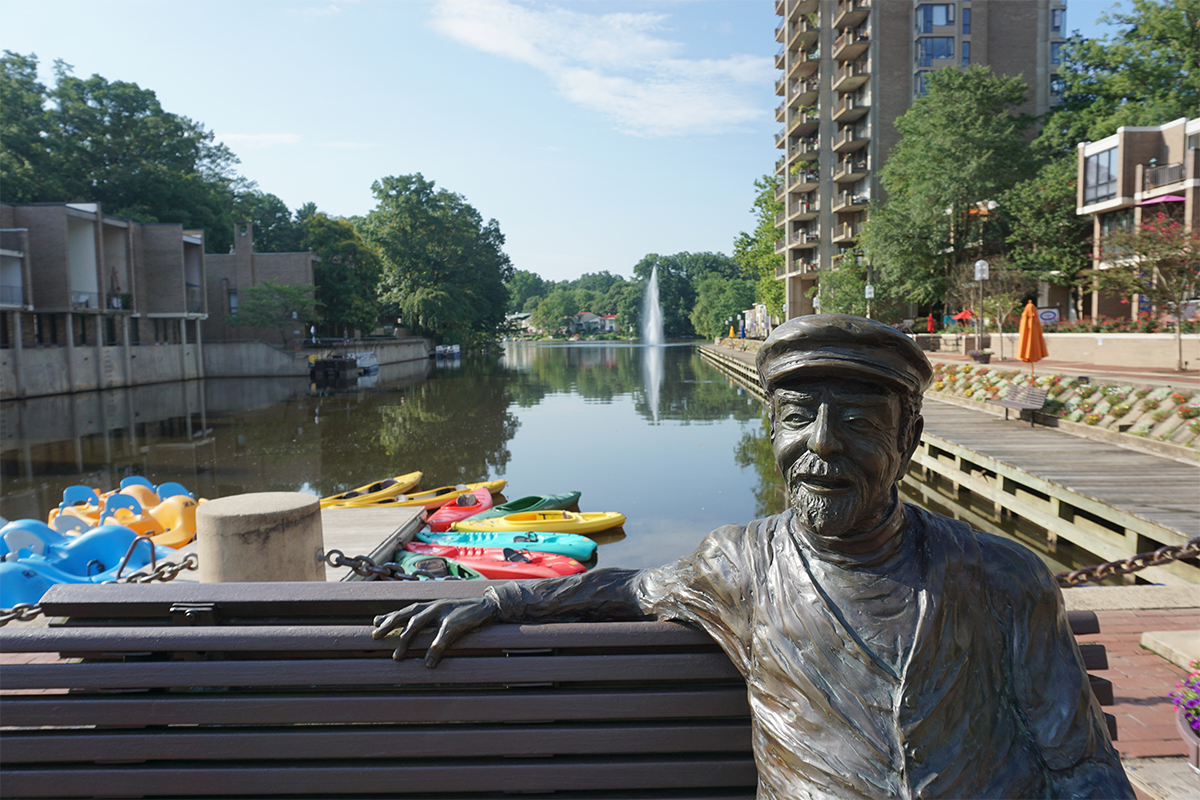Boldly going where no business has gone before can be a lonesome adventure for the erstwhile entrepreneur attempting to bring life to their potential money-making idea that could either break them at any turn … or change the world.
By David Hodes / Photography by Jonathan Timmes
The first thing an entrepreneur must know is that most ideas fail.
Most business enterprises that look good on paper crash and burn along the way, sometimes bringing down not just the business but families and fortunes.
The savvy entrepreneurs—the hardy ones—see failure as just another step toward success. It’s an odd conundrum, really, that reveals the best of human nature—that it’s not over until it’s over, that tenacity counts, that those sink-or-swim lessons learned can build a foundation of ongoing success.
Serial entrepreneurs dive into those risky waters of doubt again and again, knowing that they are courting failure with every new venture and that the odds are stacked against them.
But they also know something else that the guy working in the corporate cubicle making money for someone else may never know—that their personal dreams will come true, hard work does pay off, and the next big thing is suddenly the thing they brought into this world.
It’s the satisfaction that they were right. They fixed the problem that their gut told them needed to be fixed at just the right time. And they get to reap the rewards.
Then, without missing a beat, they do it all over again.
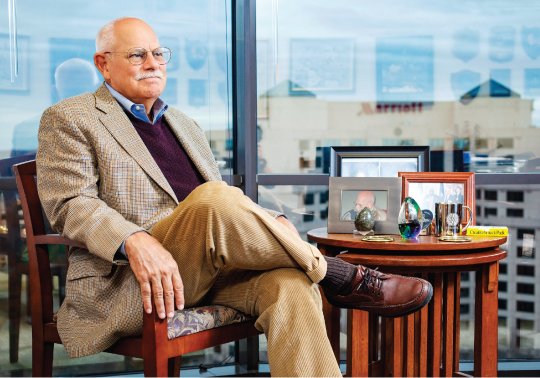
Pete Howton
Serial entrepreneur, defense industry /
Kestrel and Associates; Gray Hawk Systems; Kingfisher Systems; White Owl
Serial entrepreneur and naval academy graduate Pete Howton felt like he won the lottery. It was 2005, and Howton just sold the business he founded 10 years earlier, a government defense technology business Gray Hawk Systems, for $100 million in cash. Howton owned 51 percent of the company at the time. In quick succession, he paid off all his house and car debts, bought a house in Italy and a sailboat in the Caribbean.
His big gamble to start and run the business—which included running up a $200,000 credit card debt he used to finance the early days—had finally paid off. It was the ultimate serial entrepreneur’s dream come true. The company was started in 1995 after Howton says he was thrown out of a smaller company he launched with a partner, Kestrel Associates, a defense systems integrator in Arlington. He was destitute, he says, but had fresh credit cards to use.
“The first two years of the Gray Hawk business were dreadful,” he says. “I am doing fancy things with credit cards to make payments. And my wife was like ‘Are you sure you know what you are doing?’ And I said ‘Yeah, I am going to do the same thing over and over and over again until it works.”
Gray Hawk, which he founded in the basement of his house with 13 employees, was selected as a key contractor after September 2001 to do data mining and other contract work for the counter intelligence field, helping to track terrorists. “So all of those concepts and things were what we built with the government,” he says. “And we were pretty much in there competing with SAIC and ManTech and General Dynamics. We were in demand.”
Three different offers came in for Gray Hawk. ManTech won. And Howton cashed in.
But after the celebrations and purchases, he jumped back in to go after the next deal—his current company, Kingfisher Systems, Inc., a 150-employee firm in Falls Church, where he is chief executive officer.
He struck gold again. Gray Hawk went from $700,000 in 2005 to $42 million in 2012—a nearly 6,000-percent revenue growth. He still earns profits from the company.
The fun part of the job, he says, is when you win the contract. “You write a big proposal that is $25,000 to $50,000 right out of your pocket, basically. And you ultimately hope to get that back,” he says. “But I certainly don’t have a algorithm for making that happen. It’s a gut thing. Sometimes your chance of winning is just totally seat of the pants.”
Serial entrepreneurs like Howton know that failure is an option. “There is another one around the corner,” Howton says. “In government contracting work, there is no rhyme or reason. In this business, it’s really in the eye of the beholder. There are government people out there that will read your proposal and have a preconceived notion of one thing or another. But we don’t fire people over losses. We know the process is a little strange.”
Howton, at 70-years old and going fewer days to the office at Kingfisher, says he’s not done. He has started another company, White Owl, a health care-related business now with six employees doing the same type of government IT business that both Kingfisher and Gray Hawk do. “When we sell Kingfisher at some point, in say three to four years, we will keep White Owl with all the security clearance and past performance proof so I can beat that problem of taking five years to get a company going,” he says.
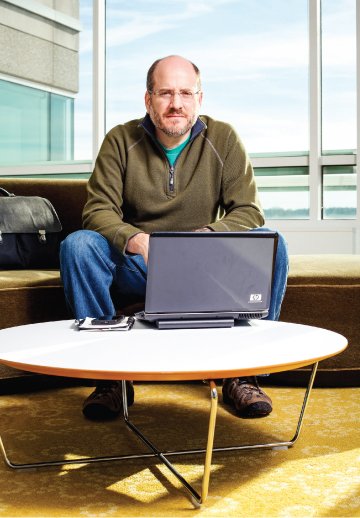
Ric Fleisher
Serial entrepreneur, technology / Eight startups including Q. Know Technologies; Cougaar Software, Inc.; Honesty Online, LLC; and Urgent.ly
Serial entrepreneur Ric Fleisher is president and chief operating officer of Urgent.ly based in Reston, an online and mobile service that provides people stuck with urgent domestic dilemmas ranging from leaking roofs to broken air conditioners and connections with repair people looking for a job near them. “Every startup I do is different,” he says. “Some people will always do the same technology and are focused on the same market. I always do a different customer base and a different kind of technology each time.
“What gets me out of bed and excited every day is the analogy of the marine hitting the beach,” he says. “Being on that beachhead, getting the first customers and the first partners. Making something real, where it had been just an idea and there was not a whole lot of reality to having something be substantive, where customers are willing to part with thousands and thousands of dollars in cash because you are enabling them to do something that they couldn’t do on their own.”
But the trap door here, as for all entrepreneurs, is that some businesses are just not sustainable, Fleisher says. “And that is an important thing to understand. You are not doing it just as adult day care. You are in it to make a living for yourself, to employ people.”
One example of a company that he was involved with that was not sustainable was a speech recognition startup in 1997, which would make it possible to do anything you can do on Outlook with your voice, such as store messages, etc. “But what I learned from that is that some things are about just the art of the possible,” he says. “It’s possible to have a machine read your emails and yes it’s possible to have a machine hear what you are saying and turn that into a file. But email is something that you see not what you hear. And here was technology that was being applied to solve a problem which seemed elegant but ultimately it wasn’t the right time.”
Fleisher says that what he is seeing today is that entrepreneurs are a lot further with their ideas than they used to be. “Now there is Amazon web services and the like where you can create your idea and put it out there and test it for very little money,” he says. “So what you are seeing is that entrepreneurs are getting a minimally viable product and putting it out and testing it as opposed to saying ‘I would like to do this if only I had the money’,” Fleisher says. “The savvy ones are saying ‘Well what can I do to test my thesis and put it out there?’”
Northern Virginia and the Metro-D.C. area are great places for entrepreneurs today, he says, because of the telecom infrastructure, the Internet infrastructure and the highly educated people here with a lot of money. “I think it’s harder in Silicon Valley. There, you are competing among all the other startups, and all the big boys, like Facebook and Google Apps. So let’s say you are in a startup in the Valley and six months in you have a bit of a hiccup. You might lose people because they are being constantly bombarded by those other companies.”
Fleisher says he is taking the Urgent.ly platform and applying it to a new sector that is not home related, with new partnerships including a well-known large mapping company. They are testing out Urgent.ly Roadside Assistance, planning a launch in the first quarter this year, and that they have several interesting partnerships. “But we are not ready to talk smack about it yet,” he says.
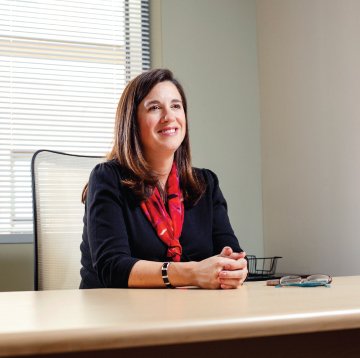
Kim Guarino
Serial entrepreneur for serial entrepreneurs / Evolve Marketing
A serial entrepreneur who works for other serial entrepreneurs, Alexandria resident Kim Guarino is the founder and CEO of Evolve Marketing and is billed as a virtual chief marketing officer (CMO)—essentially being the marketing arm for various startups and growth firms.
She started her first business in 1997 as a virtual marketing agency when she was 27. At 32 she merged with two firms to form a branding agency, and at 36, as partner and CMO, she sold her shares in that company to start Evolve, a virtual marketing agency where, for the last four years, she has worked for emerging and growth businesses. “I was working at a trade association as a marketing director,” she says. “Then I got involved in the American Marketing Association and there were quite a few consultants and agencies that I kept meeting. So I took lunches with some of them and asked them what I needed to do next to become an entrepreneur and just jump off that ledge. So it was just getting the courage to quit my job.”
She says creating her own company came from her belief that it was more enjoyable to help businesses scale their companies and achieve their dreams rather than working with a large company. “You are really working side by side with the leaders of the company and you hear their visions and you help them achieve that. That is the part of my job that keeps me going.”
She says that she got bored working for one company. “You kind of master the job and you then are doing the same job over and over again. Whereas as an entrepreneur I feel like every few months something has to change and evolve.”
She is working on a new brand called Evolve Advisor along with a growth trends infographic on key stats from the survey, essentially helping small to mid-sized companies get on a growth plan. The move takes her from being a marketing director to a business advisor to CEOs. In addition to teaching viral marketing and entrepreneurship courses as an adjunct professor at Georgetown University, she is also a member of Hot Mamas, a women’s leadership program at George Washington University’s School of Business with the goal of empowering women entrepreneurs. The program is building the world’s largest women’s case study library for women entrepreneurship and balancing work/life issues.
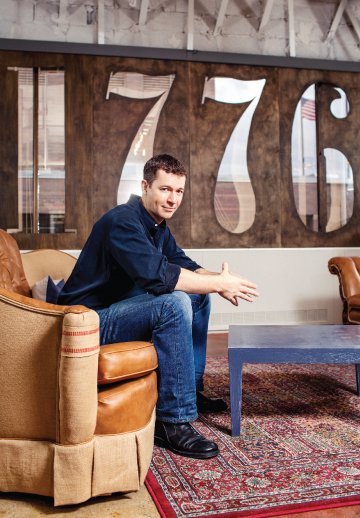
Evan Burfield
Serial entrepreneur enabler / 1776
Evan Burfield is the co-founder of 1776, an incubator that opened earlier this year designed to help connect startups with Metro-D.C. area political and financial capital, which is now 120 startups strong.
He started a software company in 1996 when he was 19, right after graduating from Thomas Jefferson High School for Science and Technology in Alexandria. He was able to raise a million dollars from angel investors.
Within six years, that company, netDecide, had become one of the leading providers of enterprise wealth management solutions for top financial service firms. He has been building companies ever since. “When I was done with the traditional educational system at 18, I was just not ready to have somebody tell me what to do,” he says. “All of the attributes that I had been criticized all through my school career—like challenging authority, asking questions—were suddenly the ones that I was lauded for.”
There are a lot of people out there like that, he says, in every generation of the country. “America has an economic system that enables people like that to go out and build companies and be successful.”
He says that the up-and-coming entrepreneurs from the millennial generation are looking past a system that just doesn’t make sense any more. “The traditional thing is that you go off to college for four years and then you get a nice entry-level job with a corporation and make maybe a couple of career jumps,” he says. “But broadly speaking, if you do what you are told, that the system works for you, that is pretty manifestly broken for most people.”
As an entrepreneur, he says, you are being rewarded for actually being able to make things happen. “At the end of the day, a corporation can never reward you for that ability as much as the market can if you are running your own company.” Being an entrepreneur, he says, puts you fundamentally in the role of constantly solving problems. “And that is the essence of what makes life meaningful.”
Being a tech entrepreneur today is a little easier now, with young entrepreneurs learning how to advance their ideas through sharing blog posts or fact exchanges, he says. “When I went to build the first prototype of the first software for my company, I had to literally go to a CompUSA store and buy a physical book on how to write code.”
The coolest thing he has seen at 1776 is an entrepreneur building a data exchange network for cancer research using an open network approach. “So as opposed to looking at the genetic causal stuff, they are really looking at the actual data in terms of who gets cancer, why they get cancer, what environmental variables they can correlate,” he says. “That’s an example of where you are coming up with an entrepreneurial idea that can really scale up and make money and create value that actually tackles one of the big meaningful problems of our time. And that is incredibly, inspiringly cool to me.”
Burfield says that the beautiful thing about entrepreneurship is that it is unbelievably pure in the sense that “ultimately the market will tell you that you really have something viable or not.
“But at the end of the day, when you are an entrepreneur, either you win or you lose. And no one can make those calls for you but yourself,” he says. “Either you make the right decisions and your timing is correct and you sniff the wind accurately and you have the talent and you win. But if you don’t do all those things right, you are probably going to fail.”
Sean McElrath
Serial entrepreneur beginner / Hallway
In a case of a serial entrepreneur helping a soon-to-be serial entrepreneur, Burfield and another well-known startup advisor, Jonathan Aberman, the managing director of early stage capital fund Amplifier Ventures based in McLean, are mentoring one of the area’s youngest tech entrepreneurial wunderkinds, 17-year-old Sean McElrath, and his social platform, Hallway. McElrath and a team of other designers created Hallway out of the venture accelerator, InvenTeam, that McElrath co-founded at the Thomas Jefferson High School for Science and Technology in Alexandria.
Hallway is a social learning network that makes fast and relevant student-to-student and teacher-to-student collaboration possible from anywhere in the world.
“The way I started Hallway is that I really wanted to solve a problem that I faced every day in school,” he says. He was taking tough classes in chemistry and other courses, and found that he had questions that weren’t being answered. “So when you are studying for a test at 1 a.m. and thinking ‘How am I going to get an answer?’, I figured out that students could really use a big network of other students and teachers who were happy and willing to answer tough questions,” he says.
As he was starting the development of Hallway, he ran into Burfield, an alumni of the school, who loved the concept and is now chairman of Hallway. Burfield is a big proponent of education reform, and calls Hallway “the future of our country.”
“[McElrath is] funny, he’s cocky, he’s incredibly quick and absorbs knowledge at a terrifying rate,” Burfield says. The team of coders at Hallway are building these incredible sophisticated architectures. “The tools that they have at their disposal, what they have learned at ages 17 and 18, is just breathtaking,” he adds. “And whether Hallway ends up being a huge success or failure or somewhere in the middle, I think you are going to see Sean moving right on to the next one and the next one after that.”
Burfield and McElrath went to Aberman with Hallway, who helped connect investors. Last September, Hallway secured seed funding from The Fort, a venture accelerator in the Metro-D.C. region. “Here I was in high school, and having a bunch of venture capitalists willing to give you money was pretty crazy,” McElrath says.
McElrath is getting ready to relaunch Hallway now, with a new mobile feature for faster responses to questions. “We imagine a world where a struggling student in the D.C. area can get help from the best calculus student in the world, whether that student lives in California or India,” he said in a press release.
McElrath says that entrepreneurs use the word disruptive a lot but Hallway really is. “They want disruptive solutions to problems that really change the game,” he says. “It’s kind of the way their brains operate, kind of on a different frequency.”
Tips on how to be a successful entrepreneur
Evan Burfield:
• You have to go through the process. Yes it’s difficult; yes it’s confusing; and yes you don’t know which information to believe or not believe or what signals the market is giving you and if you should react or not. You got to get in there and process the information and make the right calls.
• You have to execute. You have to build something that is beautiful and compel people to do somewhat irrational things at times.
Ric Fleisher:
• You will never raise money unless you are doing your entrepreneurial business full time.
• Build the product and test the idea with customers. If you had an idea and never built it, it demonstrates that you are not very resourceful and not committed.
• Check what other customers buy that is similar to your product. Could that company be a partner with you?
• Demonstrate that you are serious. Are you doing your homework? Are you getting early revenues?
Kim Guarino:
• Find your passion and do work you love.
• Be flexible. The business plan evolves every month or every couple of months. Milestones give you a goal to shoot for but it’s OK to erase them and draw another milestone.
• Have tenacity. The entrepreneurs I see giving up are the ones that thought it was going to be easy. When it got hard, they gave up and got a job.
Pete Howton:
• Hire the right people that are not only good at what they do but knowledgeable and hungry to make it happen.
• Share equity with your people because I feel like everybody is taking the risk.
• Believe in your plan. Follow the plan. Just keep going.
Sean McElrath:
• Find the problem that actually affects you every day, because the people who create the best solutions to problems create solutions for problems that affect them.
• Put in 100 percent of your effort to the project. One of my biggest problems is that I still had to go to high school every day. To be successful, you have to quit your job or drop out of school or do whatever it takes.
January 2014

